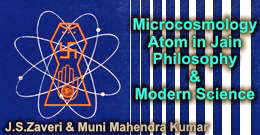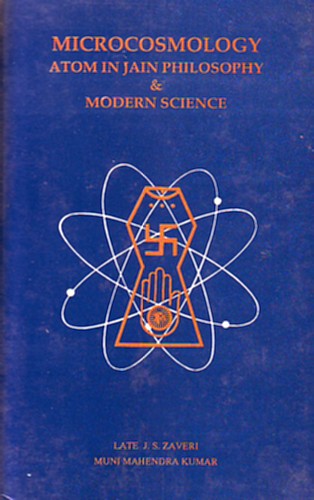
Aharaka sarira is not a common body. It is very occasionally created by learned sages only. Taijas sarira and karmana sarira are the supersubtle bodies assimilated by every soul from the stuff of the appropriate group. They are permanent companions of the soul, and are abolished only if and when the s°ul is emancipated. Taijas sarira is the link between the soul and the karmana sarira. It is the source of energy required by the vital processes of all living organisms. As its name suggests, taijas stuff is probably electrical (or electromagnetical), and the electrical characteristic manifested by the bodies of living organisms are Caused by the taijas sarira.
We have briefly described the functions of karmana sarira in the previous chapter and we can hardly add anything more here because it is extremely difficult to compare these groups with anything discovered by the modern science.
The stuff belonging to anapana vargana is used by all living beings for the process of respiration. Breathing is an essential activity for sustained life. All living beings from ekendriya to pancendriya, i.e., those having a single sense-organ of touch to those possessing all the five sense-organs, have to breathe to remain alive.
According to the scientific view also, terrestrial and aquatic animals, insects, and plants have to breathe. Of course the respiratory system of fish is different from that of, say, a dog. Plants and insects have again quite different types of systems. But whatever be the system, the stuff that is used in breathing is the element oxygen. Some take it from the air and some take it from the water. Is oxygen, then, the stuff belonging to anapana vargana of the Jains?
The stuff belonging to bhasa vargana is used by those who are able to speak. According to the Jains, ekendriya jivas or sthavaras are unable to do so but others have the ability to give voice to their feelings. Though not essential for sustaining life, this activity is essential for a purposeful life and to this extent the material in this group is useful for the psychic order of existence.
According to the scientific view, the apparatus for producing speech-sounds consists of vocal cords, pharynx (wind-pipe), larynx (voice-box), etc. Only those few who are quite high up on the ladder of evolution possess these organs. Lower animals can only produce inarticulate sounds from their throats and some others can produce sound not from the throat but by rubbing together other parts of the body. Vibration is an essential condition for producing sound waves. Whether a specific class matter is necessary for producing voice is not known.
We now come to the mental activities. The process of thinking and other mental processes, according to the Jains, requires dravya manah and bhava manah. Bhava manah (psychical mind) is innate capacity of rational thinking possessed by samjnin (developed) souls, while dravya manah (physical mind) is the instrument of thinking which the soul makes for itself out of the material belongings to the manah vargana which is fit for this purpose. Only the samjnin pancendriya categories of jiva have the ability of forming physical mind. But the Jains assert that for the process of rational thinking, physical mind is as essential as the psychical. The stuff covered by this group (manah vargana) is very compact. Composite bodies of this group are chatuhsparsi and not astasparsi, that is, they are agurulaghu i.e. devoid of mass.
The branch of science that deals with mental phenomena and their classification and analysis is called psychology. It seeks to give an account of the way in which the mind works. Unlike other sciences (e.g. chemistry), it is concerned more with theories than with facts and still belongs very largely to the province of speculations. Though it has, in some respects, attained definite knowledge, it has to emerge from the phase of speculation with regard to a majority of questions, it studies.
The fundamental and controversial question of psychology is: Is there really a mind [1] to study i.e. is there something of an entirely different nature from the body? Can we not explain the facts of psychology without introducing 'mind'? The intimate relationship and interaction between mind and body is a fact without dispute. What is disputable is the adoption of the mental hypothesis which involves the existence of 'mind' i.e., something which is not of the same order of being as the body.
 Jethalal S. Zaveri
Jethalal S. Zaveri
 Prof. Muni Mahendra Kumar
Prof. Muni Mahendra Kumar

